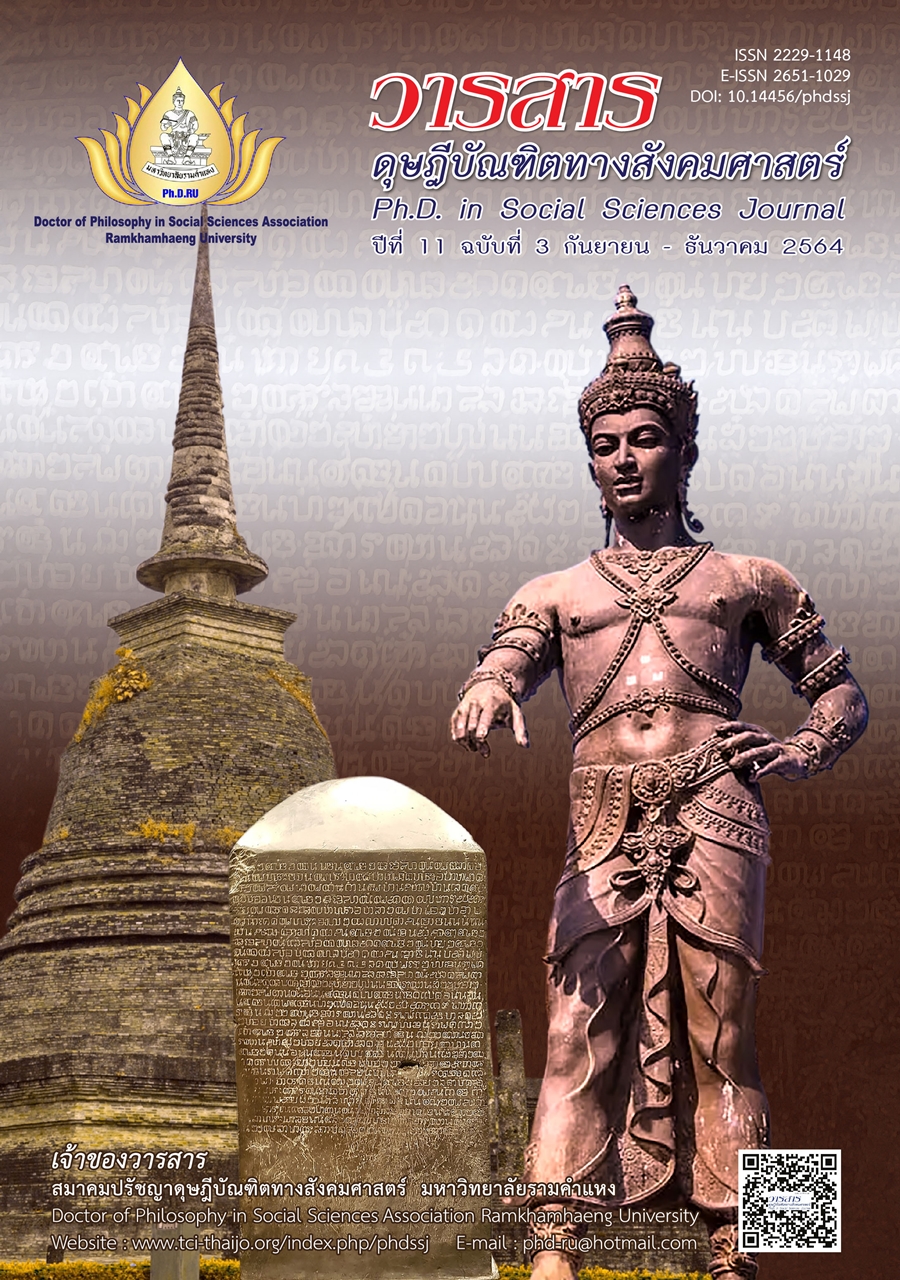Competency for Successful Thai Farmers
Main Article Content
Abstract
Objective of this research is to study the competency for successful Thai farmers with qualitative research method. There are 29 people from three sampling sets in this study (1) 18 farmers with outstanding awards from Kasetsart University (2) Seven representatives from related farming organizations for example president of Thai farmer associate, president of Thai farmer network, president of sustainable agriculture network, academics and experts from department of agricultural extension, national farmer council, and academics from rice department (3) four academics i.e. agricultural expert in sufficient economy, senior academic from Knowledge Network Institute of Thailand, agricultural expert in agricultural contribution, and the director of Chaipattana foundation. The in-depth and semi-structured interview is applied in this study in order to obtain inputs for the qualitative synthesis and able to draw.
The summary as follow: There are three necessary competencies for Thai farmers to be successful. (1) Eight areas of knowledge i.e. continuous knowledge, rice seeds, sufficient farming, organic farming/ integrated farming/new theory agriculture, natural fertilizer, lands and soils, natural reservoir/ irrigation, and adaptively of changes (2) 10 areas of skill i.e. management, accounting, marketing, planning, resources management, labor management, agricultural outbreak, environment, information technology, and equipment repair and maintenance (3) two kinds of trait and personality which are care for lands and belief in farming occupation. In addition, taking the sufficient economy concept to develop Thai farmers is also a crucial factor for being successful. Bringing innovation to apply to traditional farming knowledge lead to betterment of living quality of the Thai farmers.
Article Details
Academic articles, research articles, and book reviews in the Ph.D. in Social Sciences Journal are author’s opinions, and not the publisher’s, and is not the responsibility of the Ph.D. in Social Sciences Journal Philosophy Association, Ramkhamhaeng University. (In the case that research is done on human, the researcher has to be trained in Ethics for Doing Research on Human Training and has to produce the evidence of the training).
References
Boonyoung, K. (2016). Farmer suicides in Thai society: An analysis of reported cases in Thai newspapers. Local Administration Journal, 9(1), 1-17. [In Thai]
Chandrapatya, S., & Chiewvech, K. (2010). Rice production technology transfer of the smart farmers in Phitsanulok province. Proceedings of 48th Kasetsart University Annual Conference: Agricultural Extension and Home Economics, Bangkok. [In Thai]
Kasetsart University. (2013). Enhancing agricultural business competency: A new dimension of learning form plots to sustainable development. Author. [In Thai]
Ministry Agriculture and Cooperatives. (2016). The twenty year agriculture and cooperative strategy (2017-2036). Author. [In Thai]
Office of the National Economic and Social Development Board. (2017). The national economic and social development plan 12. Author [In Thai]
Phattharawat, C. (2014). Guideline for solving problems of Thai farmers from plots to sustainable development. Retrieved from www.cai.ku.ac.th [In Thai]
Phensupha, K., & Ratsri, B., (2016). Agricultural sector preparation Smart farmer with access to Thailand 4.0. Retrieved from https://www.kasetkaoklai.com/home/2016/09/smartfarmer-ไทยแลนด์-4-0 [In Thai]
Puvitayaphan, A. (2009). Competency dictionary. HR Center.
The Chaipattana Foundation. (2016). Sufficient economy. Retrieved from https://www.chaipat.or.th/site_content/item/1309-2010-06-03-09-50-07.html [In Thai]
Tuanchawan, B. (2008). Removing knowledge of rice farming in the form of an alternative agricultural network in Khun Yuam, Mae Hongson province phase 1. Thailand Research Fund. [In Thai]
Wichadecha, V. (2015). Report guidelines for increasing rice production efficiency to reduce production costs, increase rice production of Ban Thung Farming Group, Pattani province. Thailand Research Fund. [In Thai]


